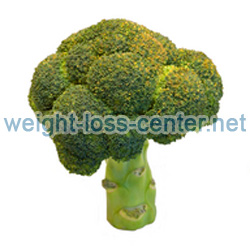I was reading through a bunch of my old blog posts last night and noticed a trend among some of them that I wanted to explore a little deeper – How Fiber Helps Weight Loss. From what I can tell, eating enough dietary fiber may be a valuable trick for losing weight that is easily overlooked. Of its many health benefits, fiber helps to curb hunger, suppress appetite, increase the rate of digestion and improve intestinal health.

Eating enough dietary fiber not only helps weight loss, but is critical for maintaining a healthy digestive system.
Fiber is a very important part of any diet and is particularly beneficial for people wanting to lose weight. Because of the many health and weight loss benefits associated with eating fiber, this important food component should never be excluded from any eating plan or diet you may undertake to lose weight. In particular, low-carb diets may be extremely fiber deficient and you should plan on taking a fiber supplement if you cannot get enough fiber from your diet. Without fiber, things are going to be very rough indeed. No matter what your reasons for starting a new diet, whether it be losing weight or controlling a medical condition, make sure you are getting the fiber that you need.
Fiber is something that is generally not digested very well and the good news is that the carbohydrates contained in fiber are not digested very easily either. Fiber, which is long, fibrous threads that are contained in fruits, vegetables and grains, passes through your digestive system mostly undigested. Without a source of dietary fiber, foods will pass very slowly through your digestive system and you will likely become constipated. If you find you are having difficulty going as often as you once did, it could be that you are not getting enough fiber. Luckily, fiber can fit in with almost every diet plan imaginable.
There are two types of dietary fiber: soluble and insoluble. Soluble fiber dissolves in water and is found in foods such as oat bran, legumes, psyllium, nuts, beans, and various fruits and vegetables. When eaten, soluble fiber forms a bulky gel in the intestine that regulates the flow of waste materials through the digestive tract. Health benefits of soluble fiber include lowering cholesterol levels (see “Diet Changes that Lower Cholesterol“) and stabilizing blood sugar levels (see “Foods that Stabilize Blood Sugar“).
Insoluble fiber does not dissolve in water and therefore cannot be digested by our body. This type of fiber is made up from the cell walls of plants and is most common in cereals, brans and cereals. This type of fiber promotes bowel movements, helps to eliminate waste matter and improves intestinal health.
When following a low-carb diet you are likely not eating enough foods, such as fruits and vegetables, that contain fiber. Broccoli and leafy greens are great sources of fiber, so eat all that you can. You can also take a fiber supplement if you are concerned you are not eating enough dietary fiber, or you are following an extreme low-carb diet, such as Atkins.
One excellent source of dietary fiber is whole grains. There are many cereals on the market that have fiber and some foods that have fiber added for dietary benefit. Not only will your digestive system work better, you are also going to have the benefit of feeling fuller for longer periods of time, and that helps to curb your appetite. When dieting to lose weight, this is one of the best benefits you can get from fiber.
Any type of diet requires nutritional balance. You may remember to take your vitamins and to be sure that you are getting enough calcium. You probably worry about sugar, fats, and how much protein you are eating, but many of us forget about fiber until we find our bodies are not digesting like they used to. Fiber is essential for good health, so never leave it out. Just find the healthiest sources that fit into your diet plans and enjoy your good health.





Thank you very much, your post really helped me for my research i’m working on my course.
I’ve noticed a substantial difference in my weight loss when taking fiber. I try to eat foods high in fiber but I also take a fiber supplement. I believe that fiber is crucial to weight loss and since it is an important part of any diet, why not make sure you’re getting the fiber required.
I’m one of those people who has a massive reaction to regular fibre in my diet. I find that I can manage fibre once every 2-3 days without the painful bloating and backaches that I get if I eat it daily. I’ve tried introducing it to my daily intake a little at a time, but I find that before I reach the equivalent of 1 bowl of bran per day I am reacting in such a way that I can’t function in my daily life. Does anyone know if one ‘bran day’ every 3 is ok or should I be seeing a doctor?
I had lived for a long while on ready meals and suddenly took stock of the muffin top that had appeared! I increased my fibre intake and started drinking more water to help it digest. Additionally, I started walking more and faster. The excess flab disappeared in just a couple of weeks! So, increase your fibre and your water intake accordingly – that way you won’t feel bloated.
Fiber was recommended to me, by my Pharmacist. He touted that when he religiously took his Fiber pills he’d easily lose 20lbs in a month! As aforementioned, he mentioned that it REALLY mitigates your appetite and “cleans you out”.
Question: what’s the daily dose for this weight loss effect??